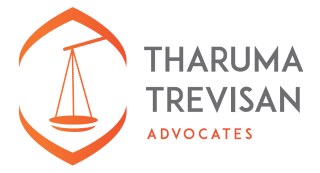
CASE BRIEF Magobe Joshua versus Uganda Misc. Application No.11 of 2019
By Boaz Kaawe.
Magobe Joshua -vs- Uganda Misc. Application No.11 of 2019
Ruling by Lady Justice Dr. Esther Kisaakye, JSC
FACTS:
On the 27th of April 2015, Joshua Magombe the applicant together with five co-accused were convicted by the Corruption Division of High Court of Uganda with 4 offenses namely; theft, electronic Fraud, unauthorised access , contrary to the Computer Misuse Act 2011; and Conspiracy to commit a felony.
He was sentenced to serve 7 years imprisonment each on the counts of theft, electronic fraud and conspiracy to commit a felony and 9 years imprisonment on the count of unauthorised Access. These sentences were to run concurrently.
The applicant appealed to the Court of Appeal which acquitted him of the offences of unauthorised access and conspiracy to commit a felony, but upheld his conviction and sentences for theft and Electronic Fraud.
Dissatisfied with part of the judgement of the Court of Appeal, the applicant filed a notice of appeal on the 11th day of September 2019 and the present application for bail pending appeal on the 18th day of November 2019.
APPLICANT’S CASE:
Relying on article 126 (2)(e) of the 1995 constitution of the Republic of Uganda and rules 2(2), 6(2), 42 and 43 of the Uganda supreme court Rules, Mr. Ochieng Evans (counsel for the applicant) submitted that rule 6(2) (a) of the Supreme Court Rules gives the Supreme Court discretionary powers to grant bail pending appeal.
Counsel relied on the decision of Oder JSC in the case of Arvind Patel vs Uganda, Supreme Court Criminal Application No. 1 of 2013 and summarised six considerations that generally apply to an application for bail pending appeal.
Relying on similar considerations, which were deduced from the case of Arvind Patel Versus Uganda (supra) and the applicant’s affidavit in support respectively, counsel for the applicant contended that ;
Magombe Joshua, the applicant was of good character and a person who could be trusted;
The applicant had complied with the bail terms imposed by the court of Appeal until the final disposal of the appeal;
The offences the applicant was convicted of did not involve personal violence;
The applicant was a first offender;
The intended appeal was not frivolous and had high chances of success;
There was a possibility of substantial delay in hearing the appeal;
The applicant had a fixed place of abode;
The applicant had four sureties who were ready to stand for him.
Counsel for the applicant submitted that although decisions made by other single Justices in the bail applications of the other co-accused were not binding in this application, he prayed that they should persuade the Supreme Court to grant the application.
RESPONDENT’S CASE:
Joanita Tumwikirize (counsel for the respondent/the state) opposed the application contending that;
The fact that the applicant was granted bail before could not be a basis for him to be granted bail in the Supreme Court of Uganda.
The applicant was a serving convict and that his character could no longer be relied on to grant him bail pending the hearing of his appeal.
The trust in the applicant (Magombe Joshua) was broken when he was convicted and sentenced by the High Court and when his convictions and sentences for unauthorised access and conspiracy to commit a felony were upheld by the Court of Appeal.
The applicant’s claims that the offences he was convicted of did not involve personal violence were not valid, because financial crimes are far worse crimes which impact on all the users of the Mobile Money service and the economy of the nation as a whole.
The intended appeal was frivolous and vexatious and had minimal likelihood of success, because the applicant’s intended grounds of appeal in the Supreme Court were the same as those that were rejected by the court of Appeal.
Since the Supreme Court was fully constituted, there was no evidence of substantial delay to dispose of the appeal.
The applicant did not have a fixed place of abode. She submitted that the Tenancy agreement the applicant had submitted was effective from February 2019 and yet the applicant had been remanded in prison as of 23rd August 2019; therefore the applicant had not been in the area long enough to be regarded as a permanent resident of the area.
The instant application should be determined on its own merit and not the basis that the applicant’s co-accused persons had been granted bail.
Counsel for the respondent also prayed that the Supreme Court declines to grant the application for bail pending appeal.
ISSUES:
Whether the applicant had the constitutional right to apply for bail?
Whether the Supreme Court is vested with powers under the 1995 constitution of Uganda to grant bail pending appeal?
RULE: The presumption of innocence and the right to apply for bail.
Article 28(3)(a) of the 1995 constitution of Uganda provides that every person who is charged with a criminal offence shall be presumed to be innocent until proved guilty or until that person has pleaded guilty;
Article 23(1)(a) of the 1995 Uganda constitution provides that no person shall be deprived of personal liberty except in execution of a sentence or order of a court and;
Article 23(6) (a) of the 1995 Uganda constitution provides that “where a person is arrested in respect of a criminal offence, the person is entitled to apply to the court to be released on bail, and the court may grant that person bail on such conditions as the court considers reasonable.
HOLDING:
Issue One: As to whether the applicant had a constitutional right to apply to bail, no he did not have a right to apply for bail pending his appeal in the Supreme Court.
Reasoning:
Article 28(3) of the Uganda 1995 constitution is explicit that the presumption of innocence is extinguished upon conviction. Secondly, nowhere does the constitution provide for the right of a convicted person to apply for bail.
The constitution permits the deprivation of one’s liberty where a person is in custody in execution of a sentence or order of a court in respect of a criminal offence of which that person has been convicted.”
Issue Two: As to whether the Supreme Court is vested with powers under the 1995 constitution of Uganda to grant bail pending appeal, no, the Supreme Court is by virtue of article 132(2) of the 1995 Uganda constitution restricted to hearing appeals only and not granting bail to a person already convicted.
Reasoning:
The powers of the Supreme Court to hear criminal appeals are laid down under Article 132(2) of the 1995 constitution of Uganda, “an appeal shall lie to the supreme court from such decisions of the court of Appeal as may be prescribed by law.”
The above constitutional provision imply that the mandate of the Uganda Supreme Court is restricted to hearing appeals only and not granting bail to someone already convicted. Nothing more, nothing less.
The Supreme Court should not assume jurisdiction under the Judicature (Supreme Court) Rules to exercise powers that are not vested in it under the 1995 constitution of Uganda to enforce a purported right to apply for bail pending appeal of a convicted person before the disposal of his or her appeal.
The language and spirit of Article 23(1) (a) of the 1995 constitution of Uganda is that the deprivation of personal liberty of a person serving a lawful sentence after a conviction of a criminal charge does not violate the constitution.
CONCLUSSION:
In holding the Lady Justice found rule 6(2) of the Judicature (Supreme Court) Rules void to the extent that it gives the Supreme Court power to grant bail to a person convicted of an offence pending the hearing of his or her appeal when;
No such right to apply for bail pending appeal exists under the constitution of Uganda, and
No such power is vested in the Supreme Court of Uganda under the Uganda constitution of 1995.
The Supreme Court should not assume jurisdiction under the Judicature (Supreme Court) Rules to exercise powers that are not vested in it under the 1995 constitution of Uganda to enforce a purported right to apply for bail pending appeal of a convicted person before the disposal of his or her appeal.
An analysis of the Constitutional provisions discussed above presupposes that the Arvid Patel case (supra), was not correctly decided and that the whole concept of courts granting bail pending appeal is unknown to the 1995 constitution human rights regime, this is so because no article of the Uganda constitution talks about or supports the proposition that the presumption of innocence subsists after conviction of a person with a criminal offence.
Image credits to : https://cepiluganda.org/2871/supreme-court-lays-down-principles-for-granting-bail-pending-appeal/
Latest Posts
Step by Step Guide to Subdvision of Land in Kenya
Agnetah Muli LL. B, KSL Dip. What is Subdivision? The process of subdivision involves the division of land into two or more parcels. The purpose is to...
COMPREHENDING REDUNDANCY IN EMPLOYMENT LAW – KENYA
“Fairness in all forms of termination is the staple of labour law”- Anon By Quincy Jesse Kiptoo LL.B. (Hons), CPM, Dip in Law The word Redundancy...

